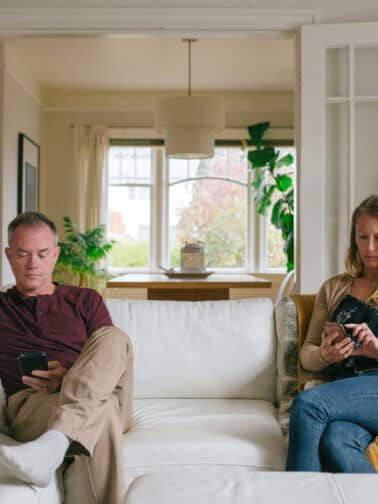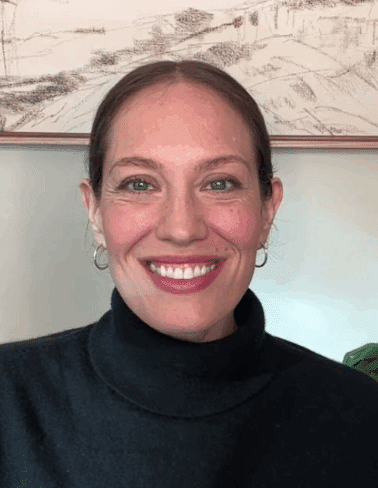TL;DR –The Sims video game became an unexpected psychoeducational tool in my early healing journey, teaching me fundamental relationship principles I never learned growing up in a dysfunctional family—that relationships require consistent investment, deteriorate without attention, and affect overall wellbeing. When relational trauma occurs within relationships themselves, particularly with mood- or personality-disordered parents, you often develop maladaptive beliefs ranging from grandiosity ("everyone should want to be my friend") to self-loathing ("I'm too broken for love"), without understanding these patterns aren't normal. Playing The Sims subversively rewired these beliefs by showing me relationships don't just happen but need cultivation, that neglecting connections moves them into the "red zone," and that having low-quality relationships deteriorates your character's wellbeing even when counterbalancing with career success.
This Trojan Horse teaching tool demonstrated what I couldn't see: my tendency to dismiss difficult relationships rather than repair them, the trade-offs between career advancement and relationship maintenance, and how some connections require more effort than others. While these lessons might seem obvious to those from healthy backgrounds, for those of us with no models of functional adult relationships, unexpected sources like video games, books, or shows can provide crucial corrective experiences. The recipe for healing trauma is unique to each person—there's no single path to recovery, and sometimes the most powerful tools come disguised as entertainment.
It’s clear to me now that The Sims taught me a lot about relationships.
The Sims, for those of you unfamiliar with it, is a video game from Electronic Arts which was released in 2000, the same year I became a freshman at Brown University.
During that first year, to escape from the stress of a double major course load (and the stress of being in almost constant relational contact with others – something that was super hard for me back then), I discovered this game and it quickly became a great nightly stress release, a way to escape when real life felt like too much.
I played the game on my colorful, blue iMac (remember those?!). Inventing people and scenarios that entertained me to no end. Feeling like a master of my pixelated little Universe while cloistered in my Keeney Quad dorm room.
While I played The Sims for entertainment back then, in hindsight and with a clinician’s mind now, I can see that The Sims actually served as a kind of subversive, psychoeducational tool on the very early stages of my healing journey. It helped me to rewire and re-form some maladaptive beliefs I had about relationships. A result of my very dysfunctional upbringing.
Relational trauma histories can often lead to maladaptive ideas about relationships.
I’ve written about this extensively before but, to reiterate, those who come from relational trauma backgrounds may experience a host of complex biopsychosocial impacts that linger long into adulthood as a result of their early childhood.
One example of these impacts can include having maladaptive beliefs about and maladaptive behaviors in relationships.
This is a particularly common impact because relational trauma takes place in relationship. And those relationships in trauma backgrounds are often dysfunctional and extremely abusive.
And if we form our ideas about ourselves, others, and the world in response to our earliest relationships, the less functional and healthy those models were, the less functional and healthy our ideas and patterns of behavior in relationship may ultimately be.
What can examples of maladaptive patterns and beliefs about relationship look like?
For example, this can look like holding maladaptive beliefs about how others perceive you – having a mindset of grandiosity. (“Everyone should want to be my friend, I’m the best.”) …to a mindset of self-loathing (“I’m too broken to have good relationships. No man would ever want to marry me if he knew about my past and my crazy family.”) …and even alternating between these two mindsets on the same day.
Curious if you come from a relational trauma background?
Take this 5-minute, 25-question quiz to find out — and learn what to do next if you do.
START THE QUIZThis can also look like conscious or unconscious maladaptive beliefs.
About what it takes to build and maintain relationships (“We’ll be friends instantly!” or “I don’t have to make time for her and invest in that relationship as much anymore, she’ll always be there for me.”).
And these are but a few of the thousands of ways maladaptive beliefs and behaviors might show up if you come from a relational trauma background.
Now, at this point in the essay, some of you may be thinking, “Well, yeah, Annie, that’s really obvious. I *know* relationships don’t work that way.”
And while it may seem obvious for you, for many of those who grow up with mood- and personality-disordered parents (or who experienced relational trauma for other reasons), this may not seem obvious to them.
Certainly, it didn’t feel obvious to me some 20-odd years ago.
But whether this feels obvious to you or not, the good news is that maladaptive beliefs and patterns of behavior can be changed.
And there are many different tools and resources that can help us begin to change these beliefs and patterns.
And yes, The Sims was one of those tools for me.
How The Sims challenged my maladaptive relationship ideas.
The Sims was a Trojan Horse teaching tool.
As I mentioned, I didn’t set out with the intention of using it as a psychoeducational tool (in fact, at that point in college I was still totally oblivious that I came from a trauma history and had healing to do – I didn’t know what I didn’t know).
Back then, I played The Sims purely for entertainment.
But still, subversively, the game still taught me some valuable, rooted-in-reality relationships principles such as:
- Strong, supportive relationships don’t just happen; they need to be initiated and then cultivated consistently (invested in with time, energy, and care) for them to be solid and sources of comfort, joy, and help.
- Not doing this, not actively investing in others, causes relationships to wither, to move into the “Red Zone” and eventually to break and end.
- Having relationships that aren’t being well-tended to can be sources of stress and life depletion to The Sims and can more easily lead to conflict between characters when and if they encounter each other.
- Having low-quality or no relationships will deteriorate the well-being of your Sim (even as you try to counterbalance this with other variables/pursuits in life).
- If you push hard on something else in the game (for instance, advancing your career or hobbies or skill development) it will mean that you have less time for the relationships and you will run the risk of those relationships suffering. These competing priorities are a tricky trade-off.
- Some characters seemed harder to bond with than others (friendship could be forced, but it was far easier with some).
- How I responded to hard-to-maintain relationships mirrored what was then my IRL relational default: dismissing them and walking away versus confronting the challenges and actively working to repair them.
And these are just a few of the rooted-in-reality relationship lessons The Sims taught me.
(Again, in hindsight, and again, subversively.)
Now, like I said before, all of what I shared may seem super obvious to you. But growing up I had literally no models of healthy, functional adult relationships. (Romantic, friendship, professional, etc.) Or what it genuinely took to cultivate and maintain those relationships.
So in a way, The Sims became a psychoeducational tool. With teachable moments for me at that stage in my healing journey. Helping me to reform and rewire some otherwise maladaptive beliefs and behaviors. (Which I built upon with much more intentionality during my Esalen years after college.)
Healing tools and teachable moments can come in many forms.
Now look, this essay isn’t necessarily a love letter to The Sims.
(I actually don’t play video games anymore and haven’t since 2005 or so. I’m at a different stage where I don’t need or want anything other than work screen time these days).
Rather, this essay is a reminder that coming from a relational trauma history might lead to you having maladaptive beliefs and behaviors about certain areas of life that your peers from non-traumatized backgrounds don’t have to deal with.
And this essay is a reminder, too, that healing tools on our recovery journeys can come in many different forms at different points in our life (currently two of my best and most effective non-clinical healing tools are my Peloton Bike and Tread – more on the power of these tools in my life another time.)
I want to drive this point home. Because, as with that old adage – “All roads lead to Rome.” – there’s truly no one single way to do healing. Often healing requires a wide and robust variety of proverbial ingredients to be healing.
The recipe that heals and helps us is as unique as the person who needs and wants the healing.
The reality is that the quality of our lives is dictated by the quality of our relationships. So get the support you need to make having good, healthy, and fulfilling relationships feel more possible. If this is something you struggle with.
Rewiring Relationship Blueprints Through Trauma-Informed Therapy
When you describe to your therapist how The Sims taught you more about relationships than your entire childhood, you’re identifying a profound truth about relational trauma—that early relational trauma damages the foundation of our house, leaving you without blueprints for how healthy connections actually work.
Your therapist helps you recognize that discovering relationship principles through a video game isn’t silly but significant, understanding that when your parents modeled only dysfunction, chaos, or neglect, you had to become an archaeologist of normalcy, excavating lessons about human connection from wherever you could find them. Together, you explore the specific maladaptive beliefs you inherited: that love should be instant and effortless (because conditional love felt so hard), that people will stay regardless of investment (because trauma-bonding seemed permanent), or that difficulty means abandonment is inevitable (because that’s what you learned).
The therapeutic work involves examining your current relationships through this new lens, identifying where you’re still operating from outdated software—perhaps pouring everything into work while relationships wither in the “red zone,” or dismissing connections at the first sign of conflict rather than learning repair.
Your therapist helps you practice what The Sims demonstrated: consistent investment, regular maintenance, tolerating the discomfort of tending to relationships even when other priorities compete for attention. Through role-play, communication exercises, and gradual real-world experiments, you learn to override the default programming that says you’re either too much or not enough, discovering instead the middle ground of being genuinely, imperfectly human in connection with others.
Most powerfully, trauma-informed relationship therapy validates that your unconventional teachers—whether video games, books, or TV shows—were acts of resilience, your psyche finding creative ways to learn what wasn’t taught, proving that healing comes in many forms and that sometimes the most profound lessons arrive disguised as entertainment, teaching you not just how to have relationships but that you deserve to have them at all.
And now, I’d love to hear from you in the comments below:
Did you play The Sims in the 2000’s (or now)? What’s one relationship lesson you gleaned from the game that helped correct a faulty belief you inherited from childhood? If it wasn’t The Sims, did some other Trojan Horse game, book, or show similarly help you develop healthier, more functional attitudes about relationships?
Please, if you feel so inclined, leave a message in the comments below. Our monthly blog readership of 20,000 plus people can benefit from your wisdom and experience.
Here’s to healing relational trauma and creating thriving lives on solid foundations.
Warmly,
Annie





